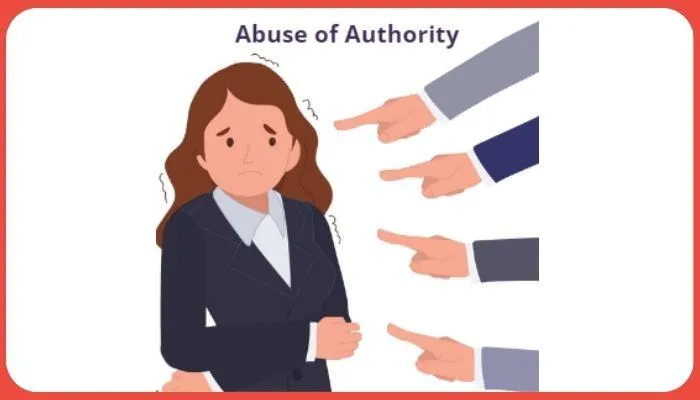Every child's well-being matters.
Case Review Articles
Quick access:
VICTIMS
ADULT ACTIONS
Alison Kelly – data issue
Amina Noor (FGM)
Quick access:
VICTIMS
ADULT ACTIONS
Alison Kelly – data issue
Amina Noor (FGM)

What is Abuse of Authority?
Custom HTML/CSS/JAVASCRIPT
Abuse of authority occurs when someone in a position of power misuses their role to exploit, intimidate, or unfairly control others. In early years provision, this behaviour can harm children, staff, and even parents, undermining trust and professional standards. Here's an overview of what constitutes abuse of authority in these settings:
1. Examples of Abuse of Authority
Bullying or Intimidation: Using a leadership role to belittle or pressure staff, creating a hostile work environment. This might include public criticism, unfair expectations, or coercive behaviour.
Favouritism or Discrimination: Treating certain staff or children unfairly based on personal preferences or biases, which can lead to feelings of exclusion or resentment.
Misuse of Safeguarding Power: Exploiting safeguarding protocols for personal gain, such as unjustly accusing someone of misconduct without evidence.
Coercion in Childcare Practices: Forcing staff to follow unsafe or inappropriate practices, such as ignoring a child’s needs to meet administrative targets.
2. Impact on Nurseries and Preschools
Harm to Children: Children may feel neglected, unsafe, or unfairly treated if staff operate in a culture of fear or bias.
Staff Wellbeing: Abuse of authority can lead to low morale, stress, and high staff turnover, affecting the quality of care.
Reputation of the Setting: A culture of misuse of power can erode trust among parents and lead to external investigations or sanctions from regulatory bodies such as Ofsted.
3. Preventing Abuse of Authority
Clear Policies: Nurseries should implement robust policies on professional conduct, bullying, and safeguarding. These should outline acceptable behaviours and consequences for misuse of power.
Training and Awareness: Regular training for managers and staff on leadership skills, equality, and safeguarding helps promote ethical practices and accountability.
Open Communication Channels: Creating a culture where staff and parents feel safe to raise concerns without fear of retaliation is essential. Anonymous reporting mechanisms can also be helpful.
Regular Audits and Inspections: Internal reviews and external inspections by bodies like Ofsted ensure accountability and adherence to ethical standards.
4. How to Address Concerns
If abuse of authority is suspected:
Document Evidence: Keep a detailed record of incidents, including dates, times, and descriptions.
Report Internally: Raise concerns with the Designated Safeguarding Lead (DSL) or senior management within the setting.
Contact External Authorities: If the issue is not resolved internally, escalate it to the Local Authority Designated Officer (LADO) or Ofsted, who oversee safeguarding and ethical concerns in early years settings.
By recognising and addressing abuse of authority, nurseries and preschools can maintain a safe, fair, and nurturing environment for everyone involved. Ethical leadership and a strong safeguarding culture are fundamental to protecting both children and staff.
AUTHOR:- Iona has nearly 10 years of experience supporting nurseries and childminders in curriculum planning, leadership, and safeguarding. Her writing is informed by public information and sector insight, aiming to provide accessible, practical support for professionals working with children. She is part of the On the Button team, helping deliver Well-being, Safeguarding and Complaint Management Software that empowers practitioners to identify concerns early and act confidently.
On the Button provides innovative software tailored to the needs of the early years sector, with a strong focus on EYFS well-being and early years safeguarding. Our tools help senior practitioners to confidently track concerns, maintain robust records, and respond effectively — all while meeting statutory guidance. From early years complaint management to team-wide safeguarding alerts, our platform puts children's safety and emotional health first.

What is Abuse of Authority?
Custom HTML/CSS/JAVASCRIPT
Abuse of authority occurs when someone in a position of power misuses their role to exploit, intimidate, or unfairly control others. In early years provision, this behaviour can harm children, staff, and even parents, undermining trust and professional standards. Here's an overview of what constitutes abuse of authority in these settings:
1. Examples of Abuse of Authority
Bullying or Intimidation: Using a leadership role to belittle or pressure staff, creating a hostile work environment. This might include public criticism, unfair expectations, or coercive behaviour.
Favouritism or Discrimination: Treating certain staff or children unfairly based on personal preferences or biases, which can lead to feelings of exclusion or resentment.
Misuse of Safeguarding Power: Exploiting safeguarding protocols for personal gain, such as unjustly accusing someone of misconduct without evidence.
Coercion in Childcare Practices: Forcing staff to follow unsafe or inappropriate practices, such as ignoring a child’s needs to meet administrative targets.
2. Impact on Nurseries and Preschools
Harm to Children: Children may feel neglected, unsafe, or unfairly treated if staff operate in a culture of fear or bias.
Staff Wellbeing: Abuse of authority can lead to low morale, stress, and high staff turnover, affecting the quality of care.
Reputation of the Setting: A culture of misuse of power can erode trust among parents and lead to external investigations or sanctions from regulatory bodies such as Ofsted.
3. Preventing Abuse of Authority
Clear Policies: Nurseries should implement robust policies on professional conduct, bullying, and safeguarding. These should outline acceptable behaviours and consequences for misuse of power.
Training and Awareness: Regular training for managers and staff on leadership skills, equality, and safeguarding helps promote ethical practices and accountability.
Open Communication Channels: Creating a culture where staff and parents feel safe to raise concerns without fear of retaliation is essential. Anonymous reporting mechanisms can also be helpful.
Regular Audits and Inspections: Internal reviews and external inspections by bodies like Ofsted ensure accountability and adherence to ethical standards.
4. How to Address Concerns
If abuse of authority is suspected:
Document Evidence: Keep a detailed record of incidents, including dates, times, and descriptions.
Report Internally: Raise concerns with the Designated Safeguarding Lead (DSL) or senior management within the setting.
Contact External Authorities: If the issue is not resolved internally, escalate it to the Local Authority Designated Officer (LADO) or Ofsted, who oversee safeguarding and ethical concerns in early years settings.
By recognising and addressing abuse of authority, nurseries and preschools can maintain a safe, fair, and nurturing environment for everyone involved. Ethical leadership and a strong safeguarding culture are fundamental to protecting both children and staff.
AUTHOR:- Iona has nearly 10 years of experience supporting nurseries and childminders in curriculum planning, leadership, and safeguarding. Her writing is informed by public information and sector insight, aiming to provide accessible, practical support for professionals working with children. She is part of the On the Button team, helping deliver Well-being, Safeguarding and Complaint Management Software that empowers practitioners to identify concerns early and act confidently.
On the Button provides innovative software tailored to the needs of the early years sector, with a strong focus on EYFS well-being and early years safeguarding. Our tools help senior practitioners to confidently track concerns, maintain robust records, and respond effectively — all while meeting statutory guidance. From early years complaint management to team-wide safeguarding alerts, our platform puts children's safety and emotional health first.
Quality Early Years Ltd.,
Dickens House,
Guithavon Street,
Witham, Essex,
England, CM8 1BJ
© Quality Early Years Ltd 2025

